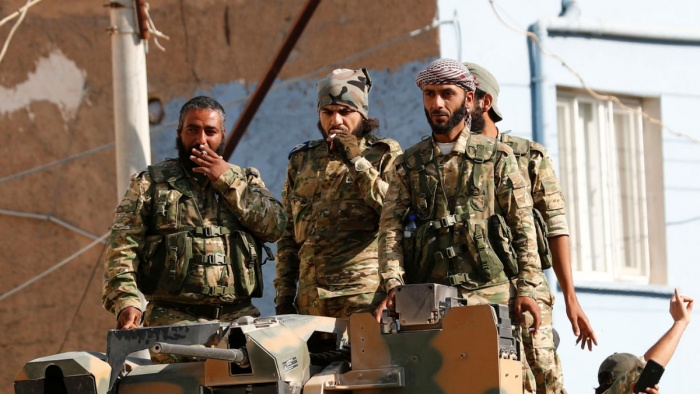Shelling by Turkish-backed armed groups on Thursday caused severe damage to a water pipeline, one of their many recent intentional actions to block the crucial resource for some 460,000 civilians in Syria’s northern Hasakah province, controlled by a local Kurdish-led self-administration, the Kurdistan 24 news website reported.
“It’s true. Today at 3 pm mercenaries targeted the Allouk pipeline, which supplies Hasakah with water, with mortar shelling,” local official Suzdar Ahmed told Kurdistan 24.
“Currently, there is no water in Hasakah, and we don’t have information to what extent the pipeline is damaged. Tomorrow at 7 pm our group will investigate the damage and estimate how many days they need to fix it.”
Northeastern Syria has been providing electricity to the Turkish-occupied areas in exchange for water flow, as agreed with the help of Russian mediation.
The militias have regularly cut off water to Hasakah province, demanding that Kurdish-led authorities in northeast Syria provide more electricity to areas under their control.
The Allouk station is located near the border town of Serekaniye, which Turkey and its militant proxies took control of in October, during its so-called Peace Spring Operation.
UNICEF and human rights organizations have criticized the interruption of water to civilians in Hasakah, many of whom are displaced and desperately need the resource.
On March 23 UNICEF Representative in Syria Fran Equiza said the interruption “during the current efforts to curb the spread of the coronavirus disease puts children and families at unacceptable risk.”
“Handwashing with soap is critical in the fight against COVID-19,” he stressed.
Human Rights Watch (HRW) in a report released on Tuesday said, “Turkish authorities’ failure to ensure adequate water supplies to Kurdish-held areas in Northeast Syria is compromising humanitarian agencies’ ability to prepare and protect vulnerable communities in the COVID-19 pandemic.”



